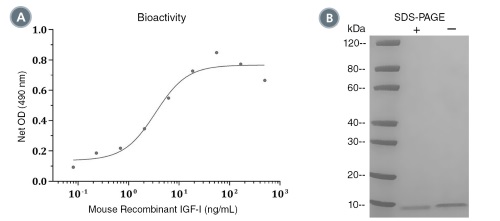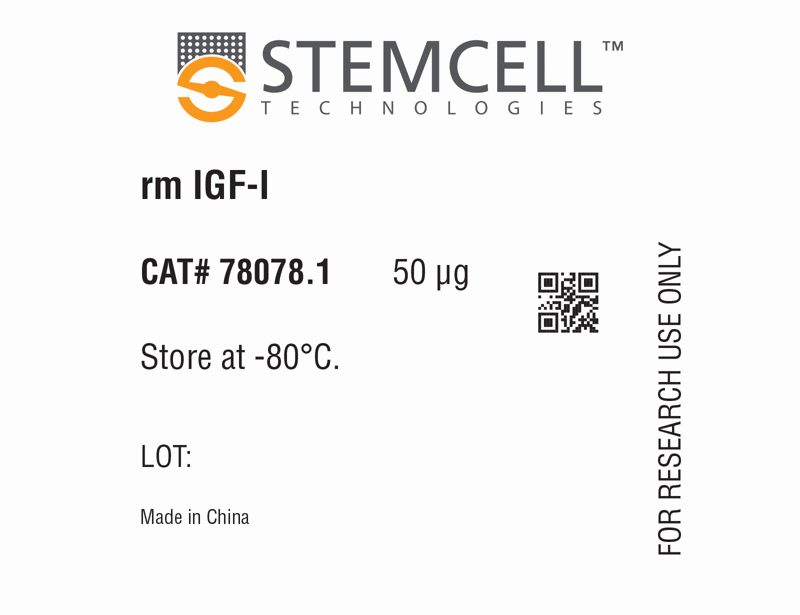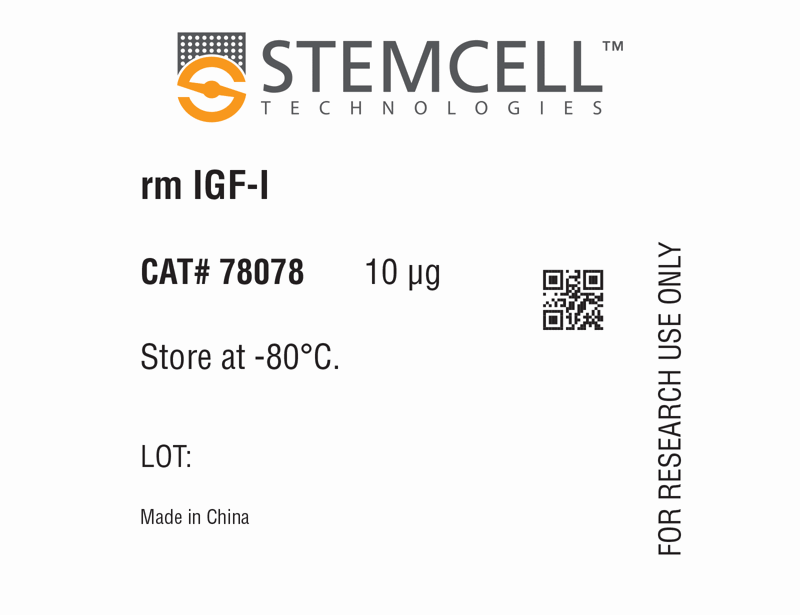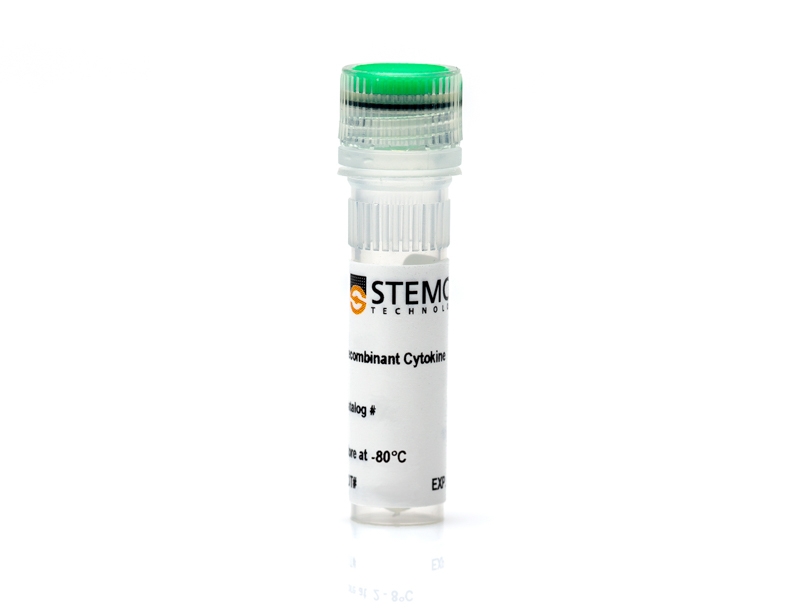Mouse Recombinant IGF-I
Insulin-like growth factor 1
概要
Insulin-like growth factor 1 (IGF-I) is a polypeptide which belongs to the family of insulin-like growth factors that are similar in molecular structure to proinsulin. IGF-I binds to the IGF-I receptor and is a potent activator of the PI3K/AKT pathway; it also activates ERK1/2 signaling. IGF-I is required for embryonic development, and it is produced mainly in liver in response to a hepatocyte growth hormone. In the absence of insulin, IGF-I is necessary for the maintenance of human pluripotent stem cells (Wang et al.). Together with interleukin 3 (IL-3), IGF-I stimulates differentiation and proliferation of myeloid cells, and has been shown to regulate lymphopoiesis by stimulating proliferation and differentiation of T and B cells in lymphoid organs (Heemskerk et al.).
Subtype
Cytokines, Growth Factors
Alternative Names
IBP1, IGF-IA, IGF-IB, IGF1A, Mechano growth factor, MGF, Somatomedin C
Cell Type
Neural Cells, PSC-Derived, Neural Stem and Progenitor Cells, Prostate Cells
Species
Mouse
Area of Interest
Epithelial Cell Biology, Neuroscience, Stem Cell Biology
Molecular Weight
7.8 kDa
Purity
≥ 95%
技术资料
| Document Type | 产品名称 | Catalog # | Lot # | 语言 |
|---|---|---|---|---|
| Product Information Sheet | Mouse Recombinant IGF-I | 78078, 78078.1 | All | English |
| Safety Data Sheet | Mouse Recombinant IGF-I | 78078, 78078.1 | All | English |
数据及文献
Data

(A) The biological activity of Mouse Recombinant IGF-I was tested by its ability to promote the proliferation of FDC-P1 cells. Cell proliferation was measured using a fluorometric assay method. The EC50 is defined as the effective concentration of the growth factor at which cell proliferation is at 50% of maximum. The EC50 in the example above is less than 10 ng/mL. (B) 2 μg of Mouse Recombinant IGF-I was resolved with SDS-PAGE under reducing (+) and non-reducing (-) conditions and visualized by Coomassie Blue staining. Mouse Recombinant IGF-I has a predicted molecular mass of 7.8 kDa.



